Placing Empathy at the Heart of Provider Behavior Change: A Toolkit
Written by: Alison Pack, Program Officer
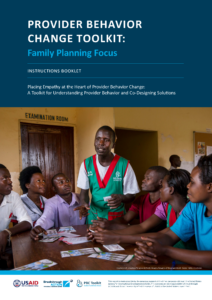 Although existing service delivery data provide valuable information, they provide little detail on factors that influence provider behavior. Furthermore, conducting service-focused research can be expensive and time-consuming. Those working in provider behavior change need resources to help them identify the most influential provider behavioral drivers in a given context. Through a co-design approach, Breakthrough ACTION created a set of provider behavior change tools for family planning to help users identify and prioritize provider-related barriers and facilitators to delivering quality health services, and then develop local solutions to address those factors. These tools offer guidance on how to employ an empathic, collaborative approach to provider behavior change initiatives.
Although existing service delivery data provide valuable information, they provide little detail on factors that influence provider behavior. Furthermore, conducting service-focused research can be expensive and time-consuming. Those working in provider behavior change need resources to help them identify the most influential provider behavioral drivers in a given context. Through a co-design approach, Breakthrough ACTION created a set of provider behavior change tools for family planning to help users identify and prioritize provider-related barriers and facilitators to delivering quality health services, and then develop local solutions to address those factors. These tools offer guidance on how to employ an empathic, collaborative approach to provider behavior change initiatives.
Providers, community members, district health teams, program implementers, and donors from around the world worked together to develop and test the Provider Behavior Change Toolkit for Family Planning. The participants in the development process gained insights on each other’s roles, needs, and limitations along with newfound empathy for each other’s vulnerabilities and challenges. Using co-design approaches and a collaborative testing process ensured that the Toolkit considered client and provider values, needs, and perspectives. The process allowed participants to gain a deeper awareness of the strong connections between social norms, district processes, and provider behaviors. The toolkit was tested in South Sudan, Uganda, and Guyana, and participants found the process to be eye-opening. The testing generated a lot of excitement around actionable insights on how client interactions, client characteristics, and workplace context influence how providers choose counseling messages and tactics. These context-related insights and learnings make the Provider Behavior Change Toolkit effective.
 The Provider Behavior Change Toolkit guides users through a four-step process emphasizing empathy; it supports providers, clients, and district/county health teams in identifying and prioritizing the root causes of provider behavior and generating local solutions. Throughout the toolkit, providers are positioned as part of inquiry and solution generation processes, rather than as part of a problem. The Provider Behavior Change Toolkit supports the diagnosis, synthesis, and ideation of effective facility-based initiatives within reproductive health programs working to improve global family planning outcomes.
The Provider Behavior Change Toolkit guides users through a four-step process emphasizing empathy; it supports providers, clients, and district/county health teams in identifying and prioritizing the root causes of provider behavior and generating local solutions. Throughout the toolkit, providers are positioned as part of inquiry and solution generation processes, rather than as part of a problem. The Provider Behavior Change Toolkit supports the diagnosis, synthesis, and ideation of effective facility-based initiatives within reproductive health programs working to improve global family planning outcomes.

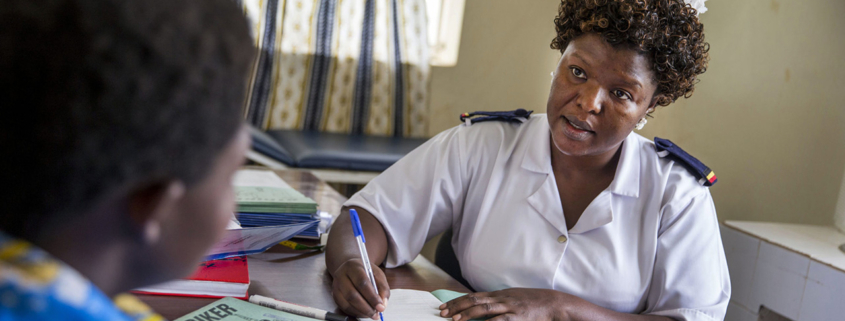 Jonathan Torgovnik/Getty Images/Images of Empowerment
Jonathan Torgovnik/Getty Images/Images of Empowerment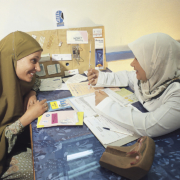 Center for Communication Programs/Photoshare
Center for Communication Programs/Photoshare Cambey Mikush/Photoshare
Cambey Mikush/Photoshare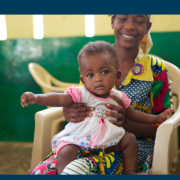 Sara Holbak/VectorWorks/Photoshare
Sara Holbak/VectorWorks/Photoshare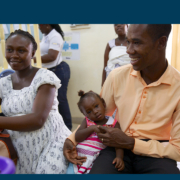 Sarah Hoibak/VectorWorks/Photoshare
Sarah Hoibak/VectorWorks/Photoshare Rebekah Munnikhuysen/US Peace Corps/Photoshare
Rebekah Munnikhuysen/US Peace Corps/Photoshare Getty Images/Image of Empowerment
Getty Images/Image of Empowerment